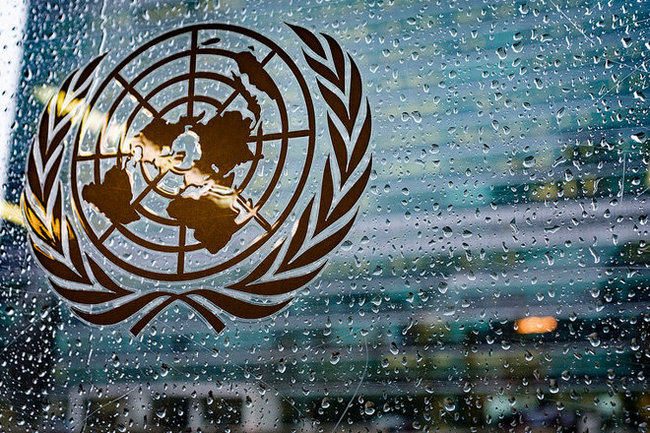Statement by Vassily Nebenzia, Permanent Representative of Russia to the UN, at the open VTC of UNSC members on “Implications of COVID-19”
Mr. Minister,
We welcome you presiding over this meeting. We congratulate Germany on assuming Presidency in the Security Council in July, and wish to you every success.
Mr. President,
We carefully listened to the briefing of the Secretary-General. We would like to thank him for his initiatives on countering this serious challenge. I would like to remind that Russia supported the Secretary-General’s call for a ceasefire the next day after he issued his appeal.
We also thank Peter Maurer, President of the International Committee of the Red Cross, and Commissioner Amira Mohammed for their briefing.
Mr. President,
We welcome the consensual adoption of Security Council resolution 2532 on COVID-19 and on the call for ceasefire.
Against the background of the spread of the disease, which teaches us new lessons, we need to use the experience of the international community in combating previous major outbreaks of infectious diseases, including Ebola. Pandemics can exacerbate the humanitarian consequences of armed conflict. Among other things, it affects food security through the disruption of agro-food systems and supply chains. Due to the COVID-19-related restrictions, important peace processes are being hindered. UN peacekeeping missions are experiencing additional difficulties in their work.
We are concerned that countries that experience armed conflicts have faced deterioration in the humanitarian situation even before the pandemic. The continuation of armed conflicts is detrimental to the effective implementation of the required necessary anti-epidemic measures. National health sectors also suffer not only through physical damage inflicted on the medical infrastructure by the hostilities, but also by the inability of national governments to reallocate necessary additional funding for healthcare.
In this context, economic coercive measures have an extremely destructive effect on the ability of countries suffering under the burden of sanctions, to purchase vital personal protective equipment and medications. The UN Secretary-General repeatedly drew attention in his reports to the particular vulnerability of developing countries under unilateral restrictions. The current situation requires an urgent review and abolition of this illegal practice. By adopting yesterday a resolution the Council made its contribution to raising awareness of this problem.
Mr. President,
We believe that the Council’s efforts to help combating the pandemic should focus first and foremost on its impact on the functioning of peacekeeping missions, ensuring the continuity of peace processes, supporting the implementation of the UN Secretary-General’s initiative for ceasefire. The threats of a sharp deterioration in the humanitarian situation in armed conflicts under the influence of COVID-19 should be considered mostly in relation to the situation in specific countries that are on the Security Council agenda. Moreover, the Council has been doing that for the past three months, taking a nuanced approach to discussing the impact of the pandemic on the situation in a given country. Attempts to generalize such a discussion will clearly bring us outside of the scope of the Council’s mandate.
As for the medical aspects of international response to the outbreak and global response to its socio-economic impacts, there are relevant UN bodies and agencies, namely World Health Organization (WHO), UN General Assembly and ECOSOC.
The Russian Federation has consistently advocated for the strengthening of the leading role of WHO in international efforts in the field of health and response to outbreaks of infectious diseases, especially in coordinating multilateral efforts to counter COVID-19. In order to facilitate activities of this UN specialized agency Russia allocated financial and methodological resources. Our national experts took part in WHO country missions to combat the outbreak of coronavirus. We consider it extremely important that the international community unanimously and unequivocally supports the work of WHO, which is at the forefront of this challenge today.
Mr. President,
We would like to assure that Russia will continue to make a significant contribution to global efforts to counter the pandemic and its consequences. Multilaterally, we are contributing through WHO, United Nations Development Program (UNDP) and other UN agencies. We continue our bilateral assistance to the countries in need by providing personal protective equipment, test systems (to 19 countries) and laboratory supplies and sending medical teams upon request. In Russia a number of innovative medicines for the treatment of coronavirus infection, as well as its most serious complications, have been developed based on the results of clinical studies. Our scientists continue research on other promising products, including vaccines against COVID-19.
We are ready to cooperate with all interested partners to ensure a coordinated international response to the spread of the coronavirus and look forward to its early and final retreat.
I thank you, Mr. President.
